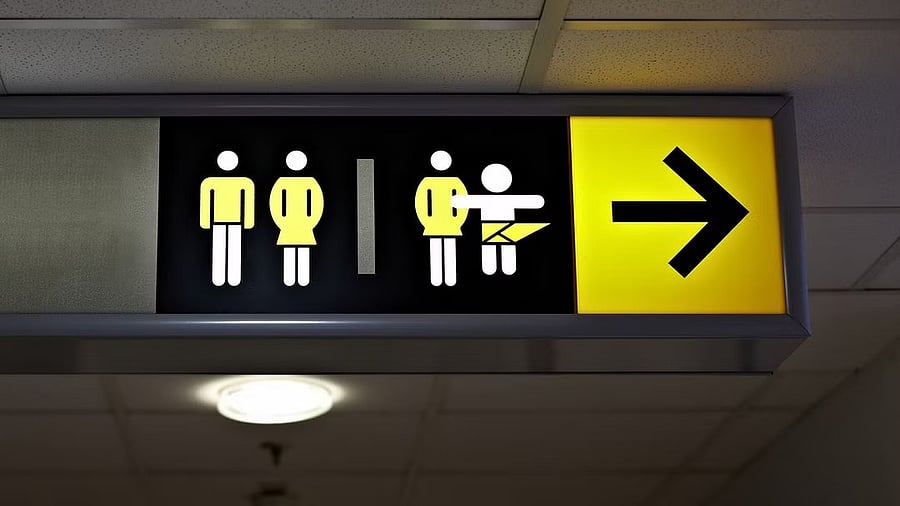
Representative image showing restroom sign.
Credit: iStock Photo
Bengaluru, a bustling metropolis with over one crore residents, faces a critical sanitation challenge that undermines the well-being of its citizens. The city's 360 public toilets are grossly insufficient from the perspective of public health, accessibility, social dignity, and environmental sustainability. A recent study by RV University's Centre for Disability Justice and Inclusion sheds light on the alarming reality. Popular areas like Church Street and Commercial Street lack nearby toilets, while iconic spots like Lalbagh and Cubbon Park have toilets that are difficult to locate due to the absence of signage. In some instances, toilets marked on Google Maps are nonexistent. The Rights of Persons with Disabilities Act of 2016 stipulates that all public buildings, including toilets, must be accessible to people with disabilities. However, out of 65 toilets investigated, a mere 14 had dedicated stalls for people with disabilities. Seven of these stalls were locked, rendering them unusable, while one had been converted into a storeroom and another was inaccessible to wheelchair users. Sanitary napkins, a basic necessity for menstruating women, were available in only two public toilets.
Several previous reports have echoed these concerns. Yet, the government has failed to take any meaningful action. Inadequate sanitation contributes to the spread of diseases, jeopardising public health. Besides, vulnerable populations, including the elderly, people with disabilities, and low-income groups, are disproportionately affected. This situation also has economic repercussions, deterring tourists, harming local businesses, and stifling economic growth. The absence of clean, safe, and accessible public toilets erodes citizens' dignity and quality of life, while inadequate waste management contaminates water sources and soil.
Deputy Chief Minister D K Shivakumar's grand plans for enhancing Brand Bengaluru may be well-intentioned, but they must extend beyond flagship protects to address serious sanitation problems. By balancing ambitious plans with practical problem-solving, the minister can ensure Bengaluru's growth benefits all citizens, and not just a select few. The government’s priority should be accelerating public toilet construction, improving maintenance and accessibility, enhancing user experience, promoting community engagement, and adopting sustainable sanitation solutions. Public-private partnerships offer a viable solution to address Bengaluru's public toilet shortage, ensuring a cleaner, healthier, and more dignified environment for all. Civic bodies in the state should take a leaf out of Singapore's Public Toilet Rental Programme and the UK's Local Authority Partnerships, both of which have successfully upgraded toilet facilities. The fundamental needs of Bengaluru should get urgent attention, and the government must respond with alacrity to citizens’ concerns. It is time for Shivakumar to move beyond words and deliver concrete solutions to this pressing sanitation crisis.
